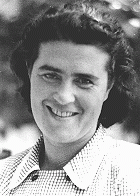You searched for: 点赞分享赚钱系统定制开发【TG���������@EK7676】平台包网搭建点赞分享赚钱系统定制开发【TG���������@EK7676】平台包网搭建45lYiA56c7
<< Previous | Displaying results 76-100 of 136 for "点赞分享赚钱系统定制开发【TG���������@EK7676】平台包网搭建点赞分享赚钱系统定制开发【TG���������@EK7676】平台包网搭建45lYiA56c7" | Next >>
-
Machla Spicehandler Braun
ID CardRaised in Lowicz, Poland, in a religious Jewish family, Machla moved to Lodz when she married Jacob Braun. Her husband worked as a businessman and real estate investor. He became the landlord for an apartment building where he and his family also lived. Machla, a housewife, cared for their five children, who ranged in age from 5 to 15. 1933-39: Machla worked as a volunteer for the Zionist cause. The Brauns were a close family, and Machla's daughters Lena and Eva held their weddings in the Braun's large…
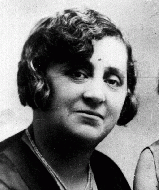
-
Renate Guttmann
ID CardRenate, her twin brother, Rene, and their German-Jewish parents lived in Prague. Shortly before the twins were born, Renate's parents had fled Dresden, Germany, to escape the Nazi government's policies against Jews. Before leaving Germany to live in Czechoslovakia, Renate's father, Herbert, worked in the import-export business. Her mother, Ita, was an accountant. 1933-39: Renate's family lived in a six-story apartment building along the #22 trolley line in Prague. A long, steep flight of stairs led up to…
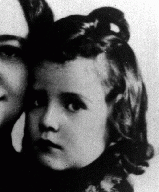
-
Gregor Wohlfahrt
ID CardGregor was born in a village in the part of Austria known as Carinthia. During World War I, he served in the Austro-Hungarian army and was wounded. Raised a Catholic, Gregor and his wife became Jehovah's Witnesses during the late 1920s. Gregor supported his wife and six children by working as a farmer and quarryman. 1933-39: The Austrian government banned Jehovah's Witness missionary work in 1936. Gregor was accused of peddling without a license and briefly jailed. When Germany annexed Austria in 1938,…
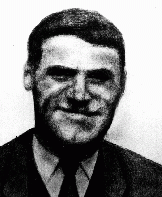
-
Rev. Marian Jacek Dabrowski
ID CardMarian was raised by Catholic parents in Niewodowo, a town in Poland's Bialystok Province near Lomza. His family lived there under Tsarist rule until 1918, when Poland regained its independence. Following high school, Marian joined the Capuchin Franciscan Order of Friars. After eight years of study in France and Italy, he returned to Poland to teach philosophy to students of his order. 1933-39: When Germany invaded Poland in September 1939, Marian was at his monastery near Grodno. They evacuated the…
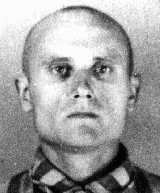
-
Ruth (Huppert) Elias
ID CardRuth grew up in Moravska Ostrava, a city in the region of Moravia with the third-largest Jewish community in Czechoslovakia. When Ruth was a child her parents divorced. She and her sister, Edith, moved in with their paternal grandmother and then with their uncle, but they kept in close contact with their father. Ruth trained to be a pianist and hoped to attend a musical academy in Prague. 1933-39: In March 1939 Bohemia and Moravia were occupied by the Germans and declared a German protectorate. That fall,…
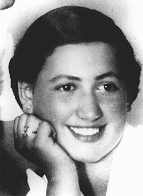
-
Rene Guttmann
ID CardRene, his twin sister, Renate, and their German-Jewish parents lived in Prague. Shortly before the twins were born, Rene's parents had fled Dresden, Germany, to escape the Nazi government's policies against Jews. Before leaving Germany to live in Czechoslovakia, Rene's father, Herbert, had worked in the import-export business. His mother, Ita, was an accountant. 1933-39: Rene's family lived in a six-story apartment building along the #22 trolley line in Prague. A long, steep flight of stairs led up to…
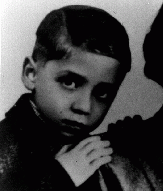
-
Jacob Wasserman
ID CardJacob was the eldest of three sons born to religious Jewish parents in the city of Krakow. His father was a flour merchant. The Wassermans spent summer vacations near Proszowice at a farm owned by their grandfather, who also ran a flour mill. 1933-39: In March 1939, at the age of 13, Jacob celebrated his bar-mitzvah. That summer, his family vacationed as usual at his grandfather's farm. They returned to a nightmare. Krakow had been occupied by the Germans on September 6. Jews were not allowed to walk on…
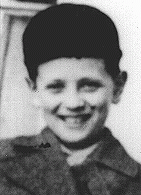
-
Hela Los
ID CardOne of nine children, Hela grew up in the Polish capital of Warsaw. Her father was an art and antique furniture dealer and had a store on Marszalkowska Street. Every year, from the beginning of the summer break until the Jewish High Holidays in the fall, the Los family vacationed in the town of Miedzeszyn, located a short train ride's distance from Warsaw. 1933-39: Hela and her family were still at their vacation home when the Germans entered Warsaw on September 28, 1939. As soon as it became possible,…
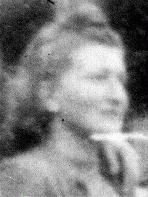
-
Chil Meyer Rajchman
ID CardChil was one of six children born to a Jewish family in the industrial city of Lodz. His mother died before World War II, leaving his father to raise the family. Chil's father could not sustain the family financially, so Chil, as the eldest male child, went to work to help support his brothers and sisters. 1933-39: On September 1, 1939, the Germans invaded Poland. Chil fled Lodz with his younger sister to Pruszkow, a small town 10 miles southwest of Warsaw, where there were fewer restrictions on Jews.…
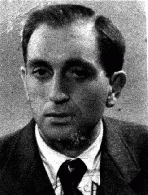
-
Sossia Frenkiel
ID CardSossia and her husband, Isadore, were the parents of seven boys. The Frenkiels, a religious Jewish family, lived in a one-room apartment in a town near Warsaw called Gabin. Like most Jewish families in Gabin, they lived near the synagogue. Sossia cared for the children while Isadore worked as a self-employed cap maker, selling his caps at the town's weekly market. 1933-39: Because of the Depression, Isadore's business had fallen off, but the Frenkiels managed to continue providing for their family.…
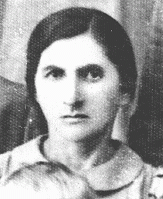
-
Doriane Kurz
ID CardDoriane Kurz’s parents, Klara and Emil Meilech Kurz, settled in Vienna, where her father ran a thriving branch of the family's multinational optical frames business. 1933-39: Doriane was born in Vienna just two years before the Germans annexed Austria in March 1938. Her family fled to the Netherlands soon after the annexation. The Kurz family moved to the town of Maastricht where a branch of the Kurz Brothers' optical frames business was located. Doriane attended nursery school in Maastricht, but the…
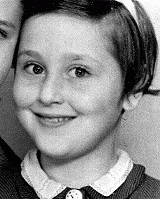
-
Kalman Goldberg
ID CardKalman was one of seven children born to religious Jewish parents in the town of Tarnow. He attended public school in the morning and religious school in the afternoon. Kalman's father owned a factory that manufactured kosher soap, sabbath candles and candles for church altars. The Goldbergs lived above their factory, which was located in a predominantly Jewish neighborhood. 1933-39: The Germans occupied Tarnow on September 8, 1939. The next day, they burned the synagogues. One synagogue, built of stone…
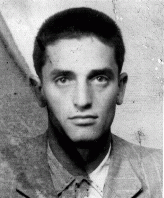
-
Ita Grynbaum
ID CardIta was the second-youngest of nine children born to religious Jewish parents in Starachowice, a town in east-central Poland. Their small one-story house served as both the family's residence and their tailor shop. The tailoring was often done in exchange for goods such as firewood or a sack of potatoes. Ita often helped her mother with chores around the house. 1933-39: Ita's father died at home on a Saturday in June 1939, shortly after returning from synagogue. He had lain down to rest, when suddenly…
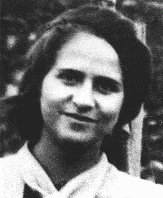
-
Chuna Grynbaum
ID CardChuna was born in a small one-story house that served as both his family's residence and their tailor shop. He was the youngest of nine children born to religious Jewish parents. The family's tailor shop mostly served Starachowice's Catholic Poles. The work was often done in exchange for goods such as firewood or a sack of potatoes. 1933-39: Chuna's father died unexpectedly in June 1939. After returning from synagogue one day, his father lay down to rest. He asked Chuna to close the shade to darken the…
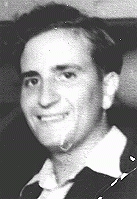
-
Hans Heimann
ID CardHans was born to a Jewish family in the Austrian capital of Vienna. His parents ran a successful export shop for ladies' hats and sold their wares to many different countries. As a boy, Hans attended a private, preparatory school in which courses were taught in both English and German. 1933-39: Hans was attending business school when the Germans annexed Austria in 1938. Hans and his family watched from their window as German troops, led by Hitler, goose-stepped into Vienna. Hans was immediately forced out…
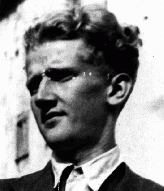
-
Dora Unger
ID CardDora, her parents, brother, aunt, uncle, and two cousins lived together in her grandfather's home in Essen, Germany. The Ungers were an observant Jewish family, and when Dora was 8, she began to regularly attend meetings of Brit HaNoar, a religious youth organization. 1933-39: In October 1938 a teacher, with tears in her eyes, came to Dora at the municipal pool, saying "Jews cannot swim here anymore." Just weeks later, on November 9, Jews were arrested and their property destroyed. A neighbor tried to…
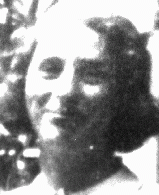
-
Judith Beker
ID CardJudith was one of three children born to a Yiddish-speaking Jewish family living on a farm near the Lithuanian town of Jonava. Judith's mother had an extensive Jewish education and taught her daughters at home. Her son, Abe, attended a Jewish religious school in Jonava. Judith's father worked in the logging industry. 1933-39: In the fall of 1938, six months after her father died, Judith and her mother moved to Kovno, the capital of Lithuania. She was 9 years old. Kovno at that time had a large Jewish…
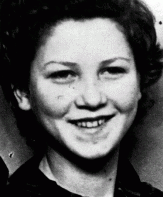
-
Aron Dereczynski
ID CardAron and his three sisters were raised in a traditional Jewish family in the town of Slonim. Most of Slonim's inhabitants were Jewish, and the town had a long tradition of Hasidic scholarship. Aron's father, Chaim, owned a yard-goods and clothing store. 1933-39: Aron attended a Hebrew-language middle school and was active in the Zionist youth movement, Ha-Shomer ha-Tsa'ir. He had been accepted to study in an agricultural school in Palestine when war broke out in September 1939 and Slonim fell under Soviet…
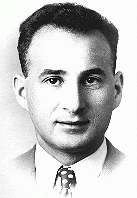
-
David Mendel Petranker
ID CardDavid was one of eight children born to observant Jewish parents living in the small town of Delyatin. During World War I, David served in the Austrian army. Following the war, he married Frieda Gaenger and moved to Stanislav [Stanislawow]. There, David worked in his father-in-law's lumber business. 1933-39: David had a post as vice-director of the forestry ministry's regional office. His three daughters attended private schools. David was an ardent Zionist, and looked forward to moving his family to…
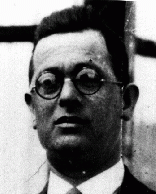
-
Edith Riemer
ID CardHela Pinsker and Elimelech Riemer were married in 1928. Two years later the Jewish couple's only child, Edith, was born. The Riemers lived in a comfortable apartment in Berlin, in a building that also housed offices of the Communist Party of Germany. 1933-39: Hitler banned the Communists, so their offices in Edith's building were shut down. When these offices were later broken into, the Gestapo blamed it on "the Jews." Though Edith's family wasn't involved, the Gestapo said that if the culprit was not…
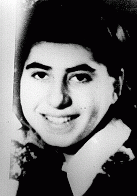
-
Natan Offen
ID CardNatan was one of four children born to religious Jewish parents. They lived in an apartment in Cracow's [Krakow] Podgorze district, a predominantly Jewish area on the southern bank of the Vistula River. Natan's father was a shoemaker until 1936, when he became a dealer in billiards equipment. His mother worked as a dressmaker. Natan and his siblings attended Polish public school. 1933-39: When Natan was 13 he built a crystal radio. Late at night, Natan and his father would listen to stations from all over…

-
Edit Grinsphun
ID CardEdit, the eldest of two children born to a Jewish family, was raised in Bulboaca, a Romanian village of 2,000 people. Her father was a farmer, and he also worked in the town's railway office. Edit attended public school for four years and then, at age 11, went to the nearby town of Bendery for high school. 1933-39: In Bendery, Edit's parents rented a room for her near the school. At school she studied several foreign languages, but she wasn't taught politics--the teachers said that politics was bad for…
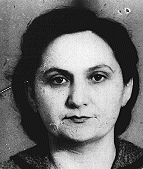
-
Sandor Braun
ID CardOften known as Sanyi, Sandor was born to religious Jewish parents in a small city in Transylvania, a province that had been ruled by Hungary until 1918. During the 1930s his home city was renamed I.G. Duca in honor of a slain Romanian leader. The fourth of six children, Sandor was also known by his Hebrew name, Yitzhak. The Brauns knew Yiddish, Hungarian, Romanian and Hebrew. 1933-39: Before Sandor's fourth birthday, a babysitter took him on an outing into the forest. When she fell asleep he wandered…
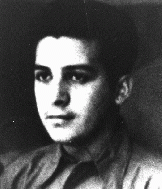
-
Herman Klein
ID CardHerman was the fourth of eight children born to a religious Jewish family in the small town of Sirma, located near the city of Sevlus. The Kleins had a small plot of land, which they farmed, and they also ran a shoe shop. At age four Herman began attending religious school. When he started public elementary school, he continued his religious lessons in the afternoons. 1933-39: In March 1939, the region of Czechoslovakia in which Herman lived was annexed to Hungary. His teacher at school was replaced by a…
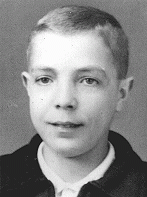
-
Klara Mintzberg
ID CardKlara grew up in Rzeszow, a Polish city with a population of approximately 30,000. The Mintzbergs were observant Jews. Klara's mother supported the family by running their fabric store. Her father was an ardent Zionist. He dreamed of immigrating to Palestine and encouraged Klara to join a Zionist youth group. 1933-39: After finishing secondary school, Klara was elected to serve on the board of directors of Poland's Ha-No'ar Ha-Ziyoni youth movement; she was the only woman on the board. She studied…
